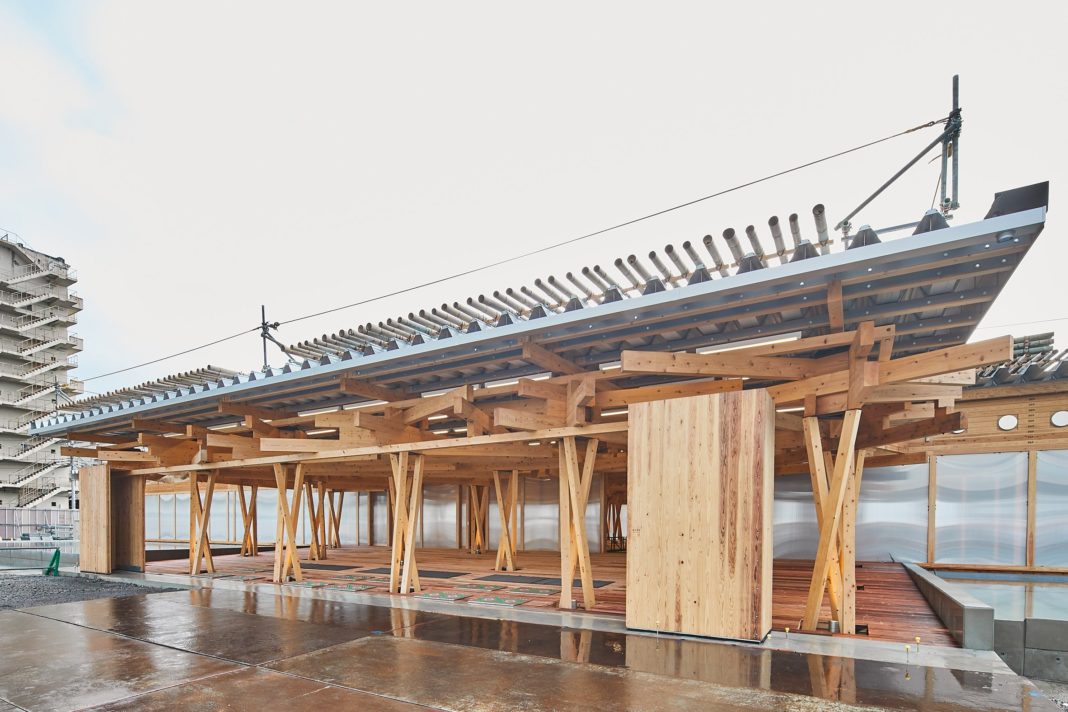Tokyo studio Nikken Sekkei has designed a timber communal constructing on the Tokyo 2020 Olympic Games‘ athletes village, which was constructed utilizing 40,000 items of Japanese wood.
The non-permanent construction, which can function as the central assembly place for athletes inside the Olympic Village, accommodates a restaurant, financial institution, medical areas, lounges, hair salons, retail areas, and a media center.
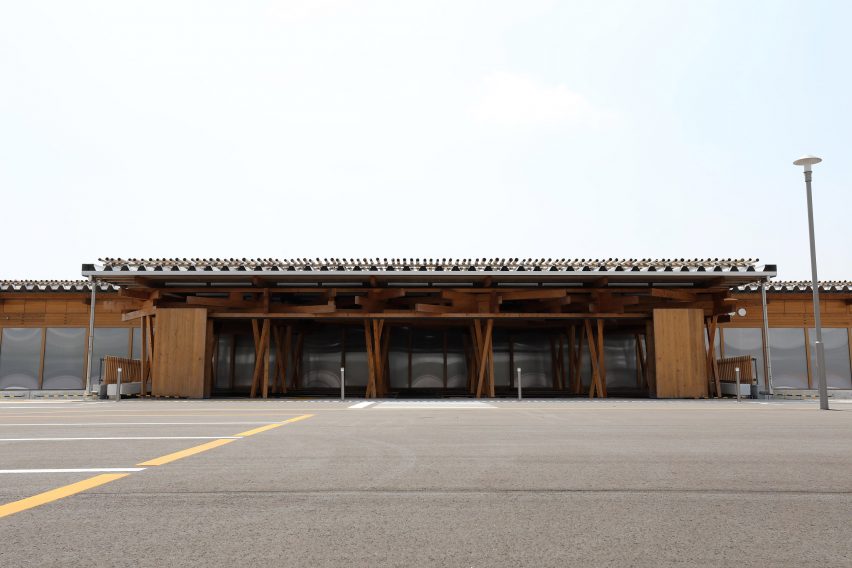
The 5,300 square-meter communal house is situated on the Harumi waterfront district of Tokyo on the jap aspect of the athletes’ village.
It was constructed from 40,000 items of sustainably Japanese cypress, cedar, and larch, which have been “borrowed” from native governments throughout the nation.
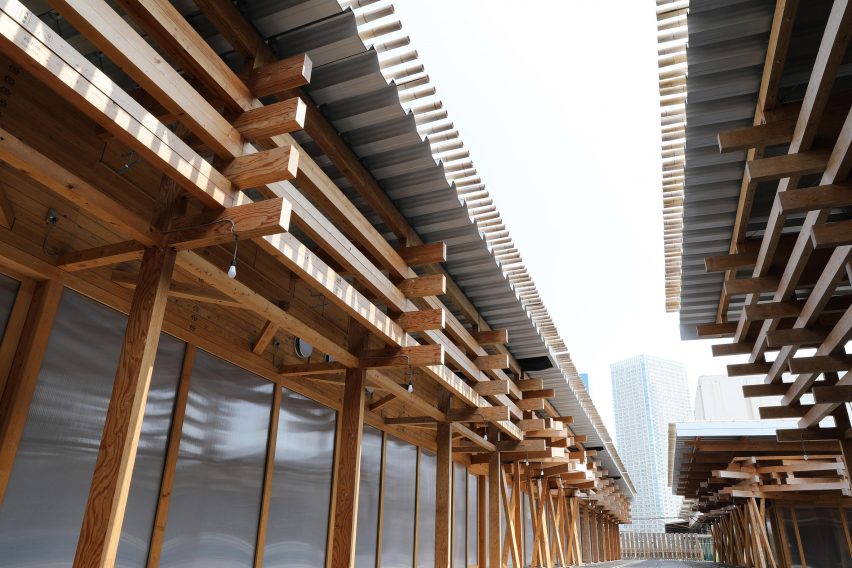
“Use of wooden from totally different areas all through the constructing will specific variety and concord,” stated the Olympics in a press launch.
“Along with revitalizing the timber trade and contributing to the conservation of sustainable forests, use of Japanese lumber displays the objective of decreasing environmental impacts and realizing sustainability by leaving a legacy that attests to the participation of all areas of the nation within the Video games.”
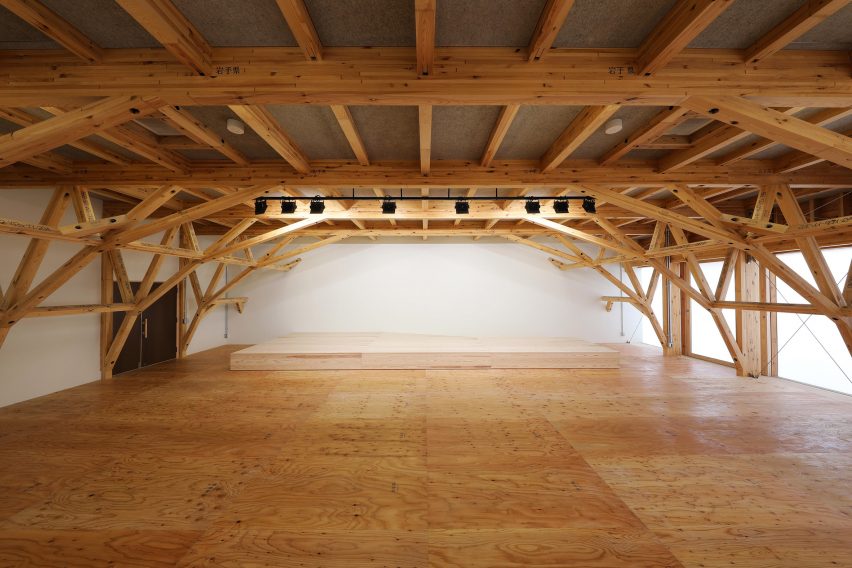
Nikken Sekkei organized the donated timbers to create a construction that pulls on the design aesthetics of conventional Japanese buildings.
It’s a low-lying, single-storey construction that’s clad in lengthy vertically and horizontally organized beams and was topped with a corrugated steel roof.
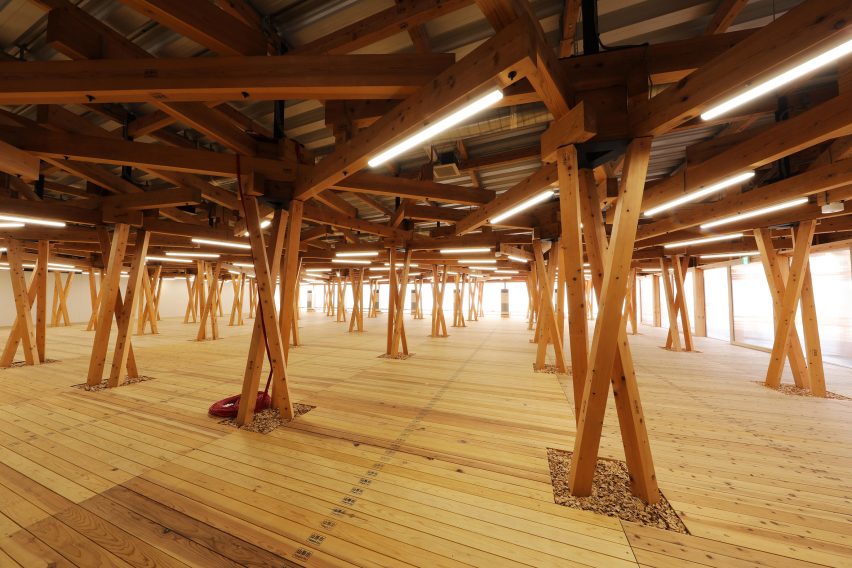
Inside, the wooden was organized in a lattice formation with the construction of the construction celebrated and left uncovered.
Each bit of wooden used within the construction was marked with a stamp that detailed the title of the realm it was sourced from.
After the completion of the video games, the construction might be dismantled and wooden returned to the donating municipalities to be reused in native building initiatives.
“Underneath the mission, lumber borrowed freed from cost from native governments throughout Japan might be used to assemble the Village Plaza,” stated the organizers.
“Then after the Video games, lumber from the dismantled Village Plaza might be used as a legacy in native governments’ public services and elsewhere.”
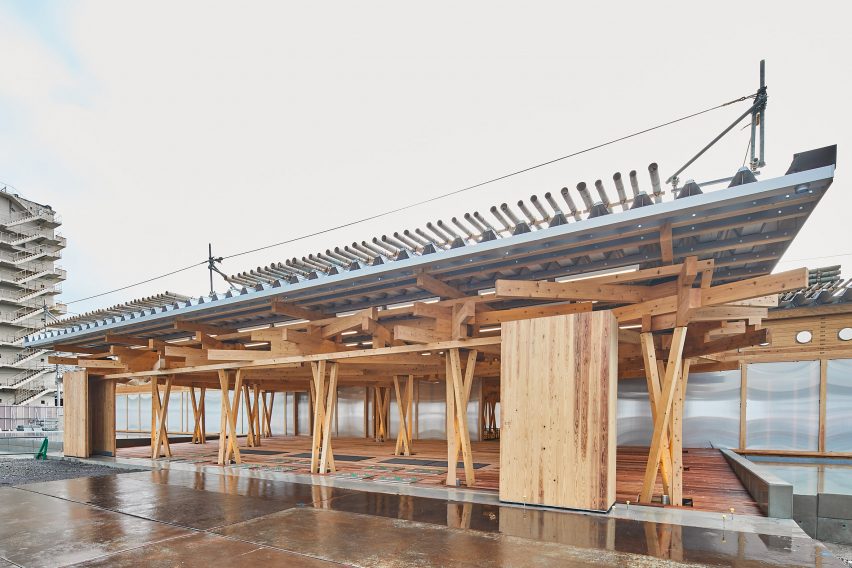
Nikken Sekkei beforehand collaborated with Japanese timber firm Sumitomo Forestry to suggest constructing the world’s tallest wooden building in Tokyo.
The studio additionally designed the Ariake Gymnastics Centre for the video games, one of only a few venues built specifically for the event.
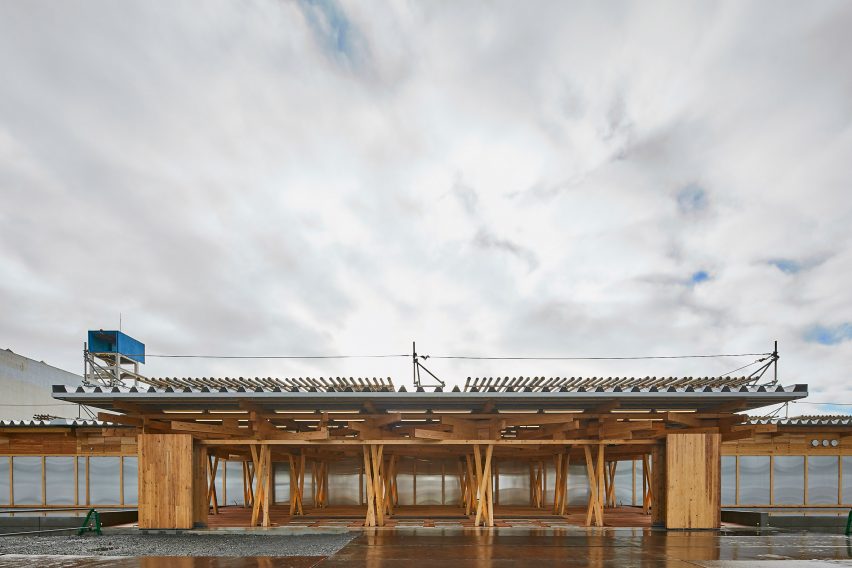
The constructing is a part of the Olympic organizer’s plan to advertise sustainable initiatives on recreation.
“Partaking the entire nation and prioritizing environmental sustainability is a core pledge of the Tokyo 2020 Video games,” stated Tokyo 2020 Vice President Toshiaki Endo.
“[This] mission is predicated on these rules, and is the primary initiative of the type within the historical past of Olympic and Paralympic Video games.”
Different initiatives aiming to make the video games sustainable embrace the athletes’ beds being created from cardboard frames, podiums made from donated plastic waste, and medals made from recycled smartphones.
Photos are courtesy of Tokyo 2020.



